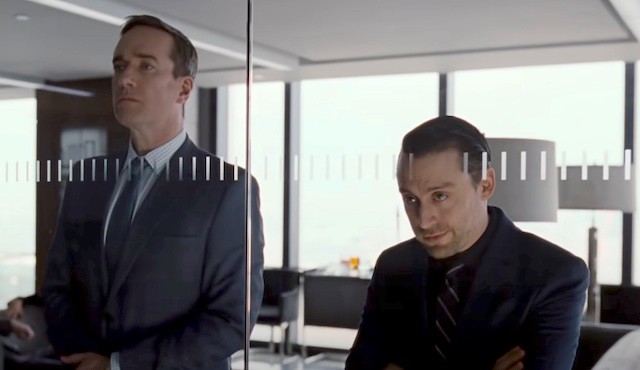I have been trying to put my finger on why I have found Succession — HBO’s must-see series about fictional US media mogul Logan Roy and his dysfunctional family — to be at once utterly compelling and annoyingly dissatisfying.
The show has an excellent pedigree. It was created by Jesse Armstrong (Peep Show, The Thick of It, Fresh Meat), and has a stellar cast featuring career-highlight performances by Brian Cox as the ferocious patriarch and Matthew Macfadyen, playing brilliantly against type as the hollow but calculating hanger-on Tom Wambsgans; these two shine just a little bit more brightly than the portrayals of the fractious Roy children by Alan Ruck (Con), Jeremy Strong (Kendall), Sarah Snook (Shiv), and Kieran Culkin (Roman).
Succession is commonly mentioned in the same breath as other stand-out television series from the last two decades, such as The Sopranos, Mad Men, and The Wire, but I wouldn’t put it in the same category at those dramas. Technically, nor would the creators, since Succession is a comedy-drama, and one that that some perceptive critics have even compared to superior situation comedies, because of the recursive plotting, which loops from season to season around the children’s struggles to grab the reins of Waystar-Royco from their ailing father.
I think there’s something to that designation. But even though the series has some scenes that are blisteringly dramatic – not least from season 4, Logan’s sorrowful dismissal of his kids in the karaoke bar (“I love you, but you are not serious people.”), their hate-love inflected attempts to say a last farewell to him over the phone, and Shiv and Tom tearing truth and chunks out of each other on the balcony at the pre-election party – its comedic instincts pull the show more towards farce than a work that has something new to say about modern life.
This, ultimately, is the source of my dissatisfaction with Succession. Because so much of the plotting and characterisation is rooted in farce, they end up being flattened in a cartoonish way that you don’t find in more serious drama. There are moments of self-awareness for many of the characters but little in the way of any kind of growth. That would be OK – who says that people have to grow or learn lessons in fiction? – but the main dramatic weakness is that you almost never get to see any of the characters doing their jobs. They mostly sit around bickering, albeit in superbly caustic terms, but that wasn’t enough for me. Logan’s charge of unseriousness therefore applies not just to the characters of his children but to the narrative, which lacks the procedural depth found in shows like The Sopranos or, my recent favourite, Better Call Saul. There’s no real sense that Kendall, Shiv, or Roman have the wherewithal to run the company. To my mind, nowhere near enough groundwork had been laid to make Tom’s transformation into the all-powerful CEO believable.
Realising that Succession is more farcical, than dramatic makes this omission more forgivable but I still can’t really understand it, given the enormous amounts of talent involved in creating the show. But what do I know – a mere armchair critic? Maybe an injection of reality would have nixed the comedy? I’ve got my suspicions.
Whatever. Succession remains an outstanding achievement – horrifically compulsive viewing. And who would have guessed that Roman would ultimately emerge as the most relatable human of the bickering Roys?
For better and more in-depth critiques, see these pieces by Hannah Mackay (BFI) and Isabel Berwick (FT).





